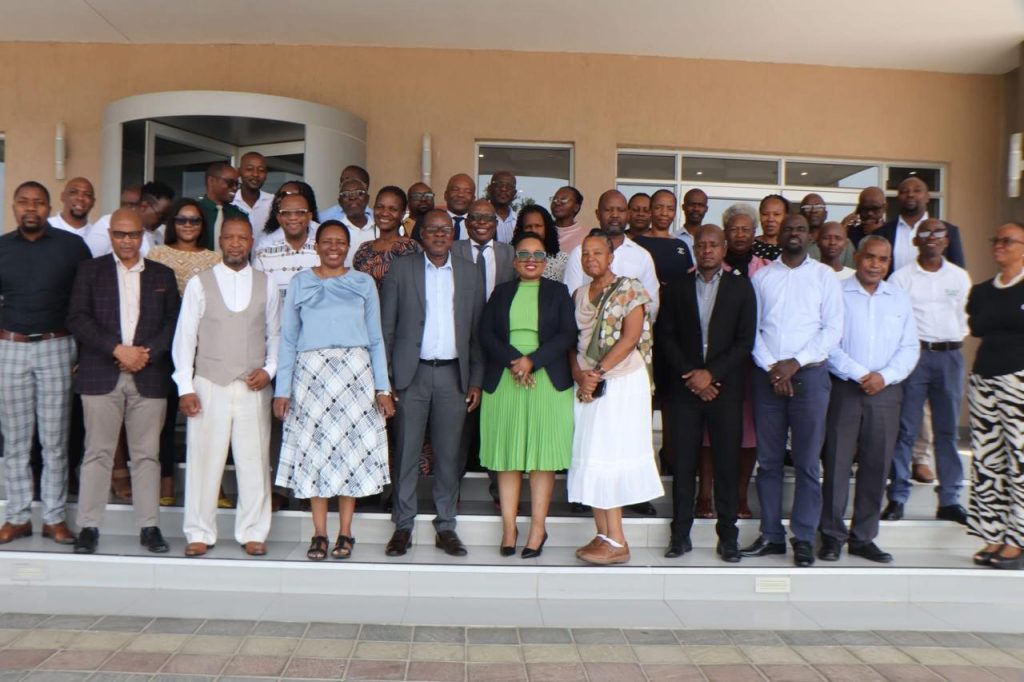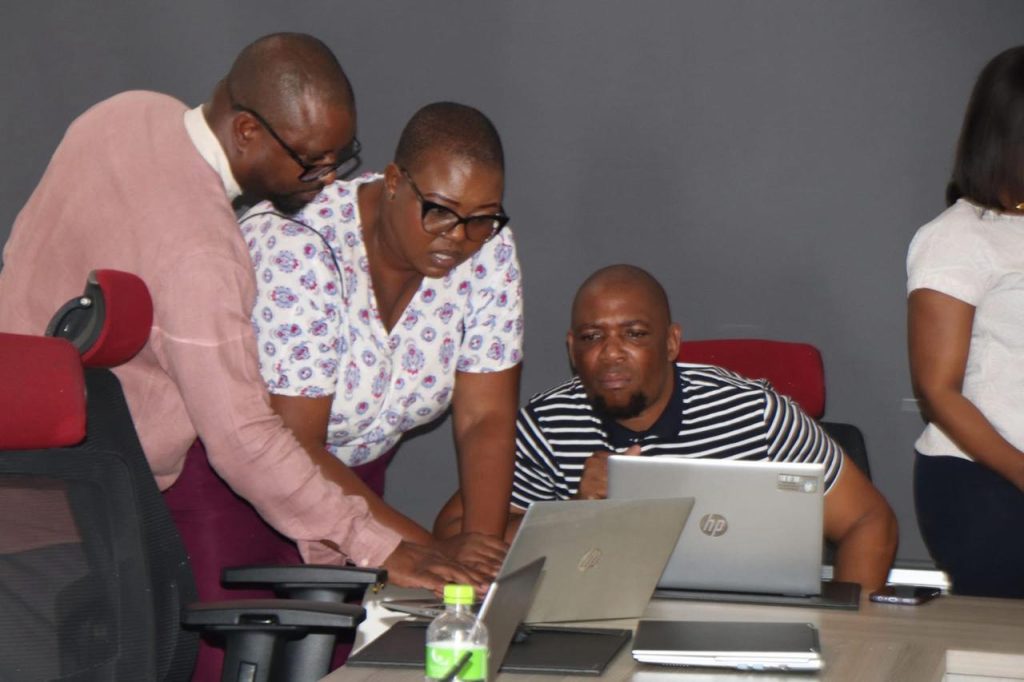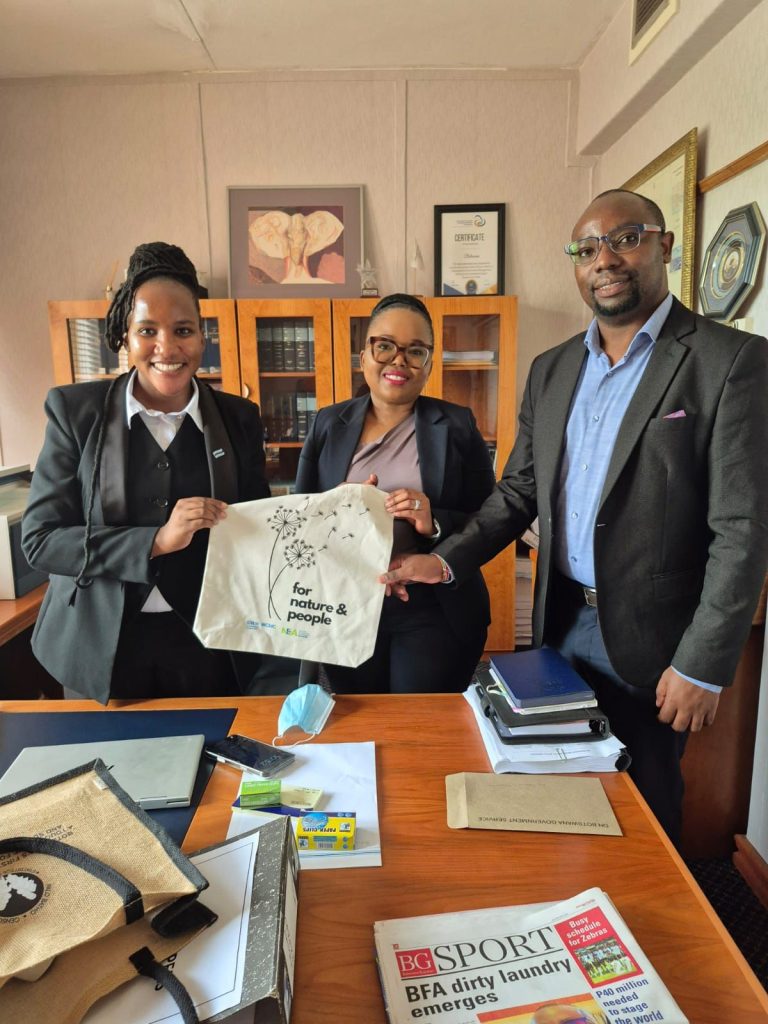Writeshop Empowers Authors and Reviewers of the Botswana National Ecosystem Assessment
- News

The Botswana National Ecosystem Assessment team conducted an induction and Writeshop in Gaborone from 24 to 28 March this year, to assist national ecosystem assessment experts to enhance their technical writing skills and to draft Botswana’s national ecosystem assessment. Attendees, including authors, new reviewers, and members of the Technical Reference Group and the Traditional Knowledge Taskforce of the National Ecosystem Assessment were also trained on the inclusion of TLK in the national ecosystem assessment by UNEP-WCMC’s National Ecosystem Assessment (NEA) Initiative teams and UNESCO LINKS under the Biodiversity and Ecosystem Services Network (BES-Net). The event produced several important outcomes and established a clear path forward for the Assessment. A key achievement was reaching over 70% completion for all chapters of the first draft, marking significant progress in the assessment process. Furthermore, a detailed roadmap for completing the Technical Report and the Summary for Policymakers was developed and agreed upon.
Knowledge gathering and sharing through a Writeshop process
More than 20 participants gathered in a collaborative environment to share experiences and knowledge while addressing gaps related to Botswana’s ecosystems. Discussions highlighted the connections between ecosystems and human well-being and emphasized the inclusion of Traditional and Local Knowledge (TLK) in the assessment process. Activities included drafting sections of the assessment, sharing information about the current status of the assessment process in Botswana and exploring various methodological approaches, such as the Multiple Evidence-Based Approach and the Human Rights-Based Approach.
This Writeshop demonstrates the NEA Initiative’s ongoing support and cooperative efforts of the Government of Botswana and the Botswana University of Agriculture and Natural Resources (BUAN) in developing the country’s first-ever assessment of its ecosystems, their services, and interlinkages with the well-being of the people of Botswana.The event was attended by Ms. Ingrid Chite, Acting Director of the Department of Environmental Protection in the Ministry of Environment and Tourism and Prof. Samodimo Ngwako, Acting Deputy Vice Chancellor of Academic Affairs and Research at BUAN.

The Writeshop aimed to enhance authors’ understanding of Botswana’s ecosystems and the cross-cutting issues that affect them. It also sought to improve their practical writing skills and empower them to create compelling and clear chapters for the Botswana National Ecosystem Assessment Technical Report and the Summary for Policymakers.
The Writeshop transformed the solitary act of writing into a collaborative experience. Authors worked on their chapters while simultaneously gleaning insights from subject-matter experts (reviewers). The subject-matter experts also helped authors validate their drafts from a technical and substantive viewpoint, sharing important details and nuances. This collaborative environment allowed authors to capture and distill knowledge, resulting in draft chapters that were better informed by various stakeholder contributions. The Writeshop process empowered authors with the help of reviewers to produce a first draft of each chapter of the assessment technical report, which will be further refined and compiled into the technical report.
This process provided an effective approach for combining experiential knowledge with existing scientific literature and other sources, including TLK. This method proves particularly suitable for the national ecosystem assessment process, where authors must harness knowledge from various sources to produce a high-quality, comprehensive, and coherent written report for policy and decision-makers. The Writeshop was useful for carving out time from the busy schedules of authors and reviewers, potentially accelerating the finalization of the first draft of the assessment technical report.
The Writeshop paves the way for authors to shape the roadmap for the assessment’s outputs. It serves as a model for collaboration, demonstrating the collective power of knowledge and targeted capacity support. By working together, authors contributed to a more resilient, inclusive and participatory national ecosystem assessment process in Botswana.
Aligning the national ecosystem assessment with the new national development goals

A meeting between the Ministry of Environment and Tourism of Botswana and the UNEP-WCMC and BES-Net representatives covered several important topics, including how to better align the national ecosystem assessment with the country’s new national development goals and the future use of the assessment findings. With the Transitional National Development Plan (NDP 12) scheduled to begin implementation in September 2025, there is a timely opportunity to integrate the assessment findings into national policy frameworks. This alignment will ensure that Botswana’s development trajectory is consistent with sustainable resource management principles, ultimately transforming the economy and enhancing the quality of life for citizens for generations to come. The discussions also highlighted how the assessment will aid in achieving the ambitious environmental goals of Vision 2036, particularly under Pillar 3, which emphasizes the importance of maintaining healthy ecosystems that support the economy, livelihoods, and cultural heritage, while also building climate resilience.